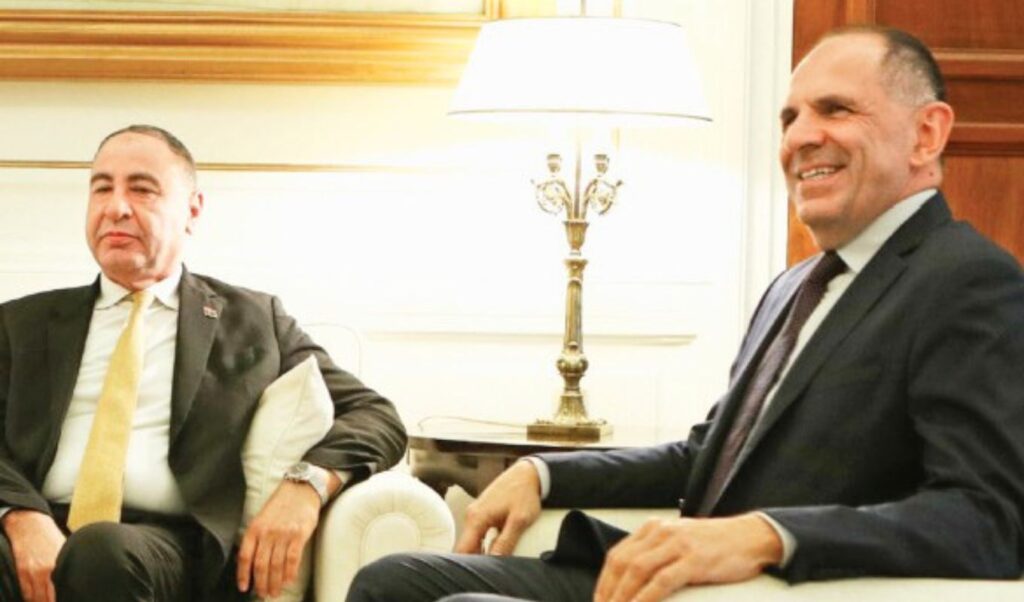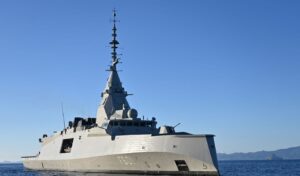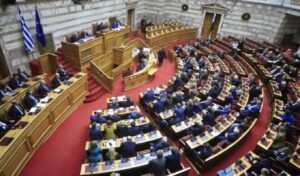After fifteen years of suspension, Greece and Libya announce the official resumption of negotiations for the delimitation of the Greek-Libyan EEZ. This historic development comes to counter the illegal Turkey-Libya memorandum and open new horizons in bilateral relations.
Greek-Libyan EEZ: The timeline of suspension and resumption of negotiations
The year 2010 marked the freezing of talks between Athens and Tripoli over the Greek-Libyan EEZ. Gaddafi’s fall in 2011 led Libya into years of instability, making the country a pawn in the hands of external powers. Ankara strategically exploited this vacuum caused by the Libyan crisis, offering economic and military support to Tripoli and securing the signing of the controversial Turkey-Libya memorandum.
Today, the restart of negotiations for the Greek-Libyan EEZ is the result of systematic diplomatic effort. The first session of technical committees took place in Athens, marking the beginning of a new phase in Greek-Libyan relations.
The meeting between Foreign Minister George Gerapetritis and the acting Foreign Minister of Libya’s Government of National Unity, Taher Salem Al Baour, reveals the importance Athens attaches to the Greek-Libyan EEZ. In diplomacy, every formulation carries particular weight. The Greek side consistently emphasized that the Libyan official is “acting,” underlining the transitional character of the Dbeibeh government. Greece’s position remains firm: the final agreement for the Greek-Libyan EEZ will only be signed with a legitimately elected Libyan government.
The two ministers talked for an hour and a half, extending their discussion to give more time to technical delegations. Even the working lunch took place within the ministry, demonstrating the value of time for advancing the Greek-Libyan EEZ.
Technical challenges and differences
Technical committees examined the terms under which negotiations for the Greek-Libyan EEZ can be conducted. The positions of both sides show significant divergences, with both having submitted their views to the UN. Tripoli has adopted Turkish rhetoric, although Libya, unlike Turkey, has signed the Law of the Sea Convention. Greece categorically rejects the Libyan claim that the median line should be drawn based on continental coasts, a position that reflects Turkish argumentation.
During the discussion, Gerapetritis used maps and repeatedly emphasized that the Turkey-Libya memorandum is illegal, with the Libyan counterpart remaining silent and uncomfortable.
Broader cooperation and common interests
Beyond the Greek-Libyan EEZ, the two ministers discussed broader cooperation issues. Refugee and migration flows formed a significant part of the dialogue, with Tripoli not being a source of flows from Western Libya.
Conversely, the eastern side under the control of Field Marshal Khalifa Haftar operates as a valve that opens and closes according to political circumstances. Strengthening cooperation includes:
• Continuing training of Libyan coast guard personnel at KENAP Chania
• Examining the launch of direct Athens-Tripoli air connection
• Greek business mission to Libya in autumn
Real reasons behind Libyan eagerness
Foreign Ministry officials note the great eagerness shown by Al Baour for starting talks on the Greek-Libyan EEZ. This stance represents success of Greek diplomatic tactics, but also stems from Libyan self-interest.
The answer to the question “why now” is clear: Libyans realized the hydrocarbon activity in the region. The preparation of American giant Chevron for exploration south of Crete and the Peloponnese, in areas without geopolitical risks, prompted Tripoli to seek settlement of years-old pending issues.
Expected reactions and challenges
The road to completing the Greek-Libyan EEZ will not be easy. Diplomatic circles consider reactions from both Ankara and Benghazi inevitable, either separately or coordinated. It is estimated that ratification of the Turkey-Libya memorandum by the Libyan Parliament under Akila Saleh will be expedited, possibly within October. Despite challenges, Greece maintains its position that the Turkey-Libya agreement will remain illegal, as it ignores the existence of Greek islands and Turkey has no opposite coasts with Libya.
The big question mark remains the potential involvement of Benghazi in the dialogue over the Greek-Libyan EEZ, as Haftar’s side does not recognize the Dbeibeh government nor the memoranda signed by Tripoli.




